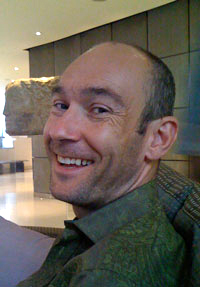Albert Einstein once wrote, “Any fool can know. The point is to understand.” So when it comes to exchanging knowledge about climate change adaptation, how much are we knowing and how much are we understanding? Well, I will put my hand up and admit I am one of the fools that Einstein speaks of, but fool aspiring to understand!
Wicked problems such as climate change adaptation are by their very nature problematic, and so how we share knowledge that can lead to understanding that in turns leads to constructive action is also problematic where there is no one-size-fits-all answer. Whilst we would not claim to have all the answers to good knowledge exchange, the broad experience that UKCIP has in the field has given us a certain awareness of some of the principles of good practice. Anyone who has an understanding of what it means to be a good teacher will recognise many of these principles.
No one can ever know everything about adaptation, yet many people try to claim they do. In UKCIP’s experience, knowing that we have a good awareness of the concepts and that other people have the expertise is the starting point of good knowledge exchange. After all, no one knows carrot farming like a carrot farmer. Perhaps though, there are people out there who could help the carrot farmer with information on future weather and climate, or how infrastructure changes could have an impact on their business. So even though you may be an expert in your field, excuse the pun, there are always others who can help. This then brings us to the creation of networks of people, sharing knowledge of a problem. But knowledge as we know does not mean understanding so how does this transformation happen?
Sustained dialogue within these networks is critical, though what is just as critical is the opportunity to reflect on the knowledge being shared and to help each other make the links that can be applied to an individual context. As an organisation’s understanding develops they will need new members of the network to bring in new ideas that necessitates an organic, fluid movement of people and ideas within the network. The expert you needed at the start is not always going to be the expert you need throughout.
The practicalities of how we have gone about facilitating the creation of these dynamic networks will be the work of future blogs. But for now let us recognise that being a fool is not going to help any organisation adapt to a changing climate, but understanding could.


